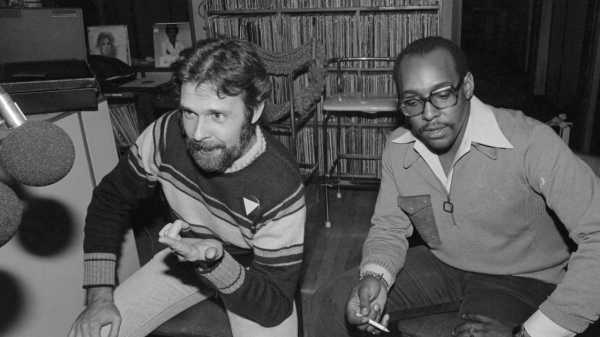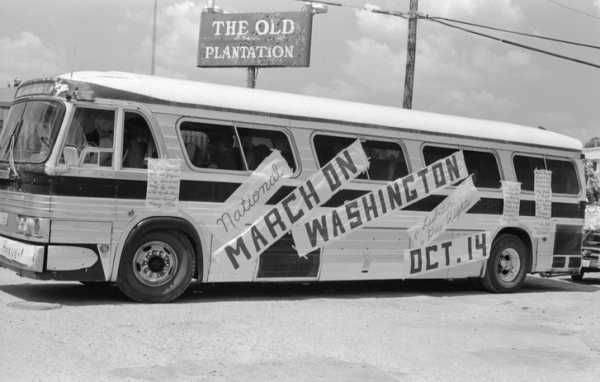
Sometime after 2009, when Annise Parker was elected mayor of Houston, becoming the first openly gay woman to run a major American city, she remembers being stopped in her garden by her activist neighbor Ray Hill for some idle chitchat. “One day, you’re going to be delivering my eulogy,” he said. She figured it was a joke, in keeping with Hill’s local reputation for self-mythologizing. But then, a couple of months ago, she heard from him again, in earnest. He was seventy-eight and in hospice care. “He first said, ‘I want you to do the funeral, and it’s going to be all up to you,’ ” she recalled earlier this week, after Hill’s death, of heart failure. “And then he proceeded to give me all the instructions.” They were highly specific. He wanted a service of no more than twenty minutes, featuring three speakers and two songs—“and no hymns, no prayers, can’t be in a church,” he said. His tombstone was to include only his name, his dates of birth and death, and the United States Supreme Court citation for City of Houston v. Hill, a case, from 1987, in which he won the First Amendment right to interrupt police officers who were engaged in executing their duties. He had been arrested, in 1982, for shouting, “Why don’t you pick on someone your own size?” while cops accosted his friend. A footnote in the Court’s decision called him a “citizen provocateur,” which he adopted as an honorary title and printed on business cards. “He referred to himself as a person who was born to rub the cat’s fur the wrong way,” Parker said.
The twenty-minute restriction—which Parker admits that she plans to violate—was an amusing touch, given the almost impossibly picaresque scope of Hill’s life, and his own propensity for indulging in personal history. “I was the eye candy on Tennessee Williams’s left elbow when he was in New Orleans,” he’d say, or, “My mother, before becoming a nurse, was a blacksmith at Port Houston Iron Works, to make metal things to chuck at Nazis.” He was the organizer of the first march on Washington for gay rights, in 1979, and, for a brief stint in the late nineteen-fifties, a secretary for a local chapter of the N.A.A.C.P. (“I was the little white boy over in the corner,” he said.) He was also a radio d.j. and a shoe salesman and a stage performer and a jewel thief. As the Houston Chronicle put it, “Hill exuded drama like some people sweat.” Though he never earned a college degree, he studied communist economics at Columbia and sexual behavior at the Kinsey Institute, in Indiana. He was a friend of Truman Capote, Edward Albee, and Harvey Milk. He had what he called a peg leg, owing to complications from diabetes, and was unabashed, near the end of his life, in describing himself as a panhandler.

Hill organized the first march on Washington for gay rights, in 1979.
Photograph Courtesy Botts Collection of LGBT History
Hill came out as gay to his parents in 1958, while a junior at Galena Park High School, where he was spared much shaming, he said, because he was the captain and quarterback of the football team. He’d also been a Baptist preacher in training, a teen evangelist. “Thank God,” his mother, Frankie, said, according to the coming-out story that Hill refined over the years. “We noticed you tend to dress up more than the other boys in the neighborhood, and we thought you might grow up to be a Republican.” His parents were committed labor organizers, and he liked to say that he’d been raised on a “breakfast diet” of Saul Alinsky.
Instead of becoming a Republican, Hill became a criminal, first forging checks and later stealing jewelry and antiques and art—“things queer people know about”—and eventually earning a prison sentence of a hundred and sixty years, of which he served only four years, four months, and seventeen days, before winning his release, for good behavior.
“I met Ray in 1975,” his close friend Phyllis Frye told me. “He’d been out of prison six months, and was a student at the University of Houston-Downtown, running for student-body president. He had a campaign button: ‘Fruit’s Rights Freedom Fighter.’ ” Frye was on campus to give a lecture to a psychology class about her transgender identity. Hill said that, if she were to run afoul of the city’s ordinance forbidding cross-dressing, she shouldn’t go to a lawyer—she should go to him. He knew people who could help.
“Ray was with the outcasts of the movement, so he was there before the trans community was mainstreamed,” Parker said. She appointed Frye to a municipal judgeship, in 2010, making Frye the first openly transgender judge in the United States.
“I have an autographed copy of that page of the Supreme Court Reporter in my office,” Frye said, alluding to Houston v. Hill. “He had his phone number—you’ll love this. It was 713-523—and here it comes—6969. That was his phone number for decades! That was on the business card he gave out.” Frye recalled one of Hill’s odd jobs, as a vice-squad lookout for an adult bookstore—“he would spot them, and then go to the fuse box”—and mentioned that, in recent years, as Hill’s health declined and his medical costs mounted, she’d taken to leaving two hundred dollars in cash in an envelope with Hill’s name on it at the front desk of her law office when he asked.
Hill’s service will take place this Sunday, on the steps of Houston City Hall, just a couple of blocks from where he was born. In keeping with his request, there will be six honorary pallbearers: two cops, two ex-cons, and two members of “the sobriety community,” as Parker put it. (Hill took his last drink in 1959—in Havana, where he went to support the Cuban Revolution, or perhaps to escape his senior prom, to which the school wouldn’t let him bring a boyfriend.) One of the requested speakers required the permission of his parole officer to attend. His name is Jon Buice, and he is not ordinarily allowed to set foot in Harris County. In 1991, using a pocketknife, he stabbed to death a young man named Paul Broussard in an incident that attracted national attention as a hate crime, thanks in large part to the activism of Ray Hill. Broussard had just left a nightclub in Montrose, a traditionally gay neighborhood in Houston. Buice was one of ten assailants from the Woodlands, a nearby suburb, who were said to have gone looking to “beat up fags.” After the police initially evinced little interest in pursuing the case, Hill mobilized protests, shutting down traffic in Montrose. He coined the phrase “the Woodlands Ten.” Buice, who was seventeen at the time of the stabbing, was sentenced to forty-five years.
And then they became friends, through Hill’s other long-term cause, advocating for prisoners. Back in 1980, Hill launched a weekly radio program called “The Prison Show,” during which he took calls from the family members of people who were incarcerated, thereby facilitating a level of communication beyond the constraints of prison phones. He mentioned on the air that he wanted to hear from Buice, who in turn wrote him a letter. Hill began visiting Buice, and came to feel that Broussard’s death hadn’t been a hate crime after all, and was instead a drunken mixup. He started advocating for Buice’s parole, alienating many in the gay community. “The story of me and the Woodlands Ten has got enough irony in it to rust,” Hill told Rachel Maddow, in a television segment in 2006. Buice was granted parole five years later.
Parker is among those who still regard Buice’s stabbing of Broussard as a hate crime, but believes that he paid his debt. She suspected that, if Buice appeared at the service, half of those present would be “angry and horrified,” and the other half would say, “That’s Ray. That’s what he wanted.” In the end, Buice was not granted permission to speak at the public memorial.
“It never mattered to him what other people thought,” Parker went on. “The trouble with Ray is that he’s the hero of his own stories. He did amazing things, but if he couldn’t remember the details, he’d just make ’em up. And it was always better when he told it.”
“The Trouble with Ray” is also the name of a documentary, from 2014, in which Hill says, “I am the one queer ex-convict you will meet in your life who grew up to be who his mother intended him to be.”
Sourse: newyorker.com






